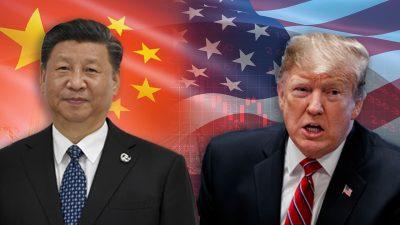Chinese shoppers to shun American brands on busiest shopping day due to 'national loyalty': Survey
The world’s biggest shopping event takes place on Nov. 11 in China, and the majority of shoppers plan to boycott American brands because of the country's trade war with the U.S.
Seventy-eight percent of Chinese consumers said their consumption of U.S. brands on Singles’ Day would be impacted by the struggle, while 70 percent said their overall purchases would be affected, according to an AlixPartners survey of 2,022 people.
“More than half of respondents (51 percent) cited national loyalty as the main reason for not buying American brands,” the survey found.
The tit-for-tat trade war has seen the U.S. slap tariffs on more than $350 billion of Chinese goods, which has exacerbated the slowdown of China’s economy and hurt U.S. manufacturers and merchants.
Singles’ Day, which started as a “holiday” for the Chinese to buy gifts online and celebrate being single, has turned into the country’s version of Black Friday – except much bigger, and losing revenue then heightens the pain for American firms.
CLICK HERE TO READ MORE ON FOX BUSINESS
Last year, Alibaba said Singles’ Day sales on its e-commerce platform totaled $30.8 billion in a 24-hour period, compared with the record $6.22 billion of online sales for Black Friday.
Aside from national loyalty, survey respondents said they would snub American products because of quality (27 percent), price (16 percent) and speed of delivery or customs (6 percent).
DEMOCRATS' PLAN TO RAISE TAXES DANGEROUS FOR STOCK MARKET: GOLDMAN SACHS
AlixPartners found 61 percent of respondents preferred local brands in general, compared with 30 percent who preferred foreign brands. Overall, foreign-brand purchases are expected to rise 3 percent this year.
Chinese consumers “prefer local brands, and the recent rise in pro-China feeling has only pushed this further,” AlixPartners said. “But Chinese consumers are pragmatic; they will not sacrifice quality simply to buy Chinese products – they are increasingly sophisticated buyers.”
Foreign-made products are considered to be of better quality (57 percent), have more trustworthy manufacturing (47 percent) and better product design (43 percent), the survey found. Still, only 22 percent of respondents admitted to having a preference for overseas goods.






















